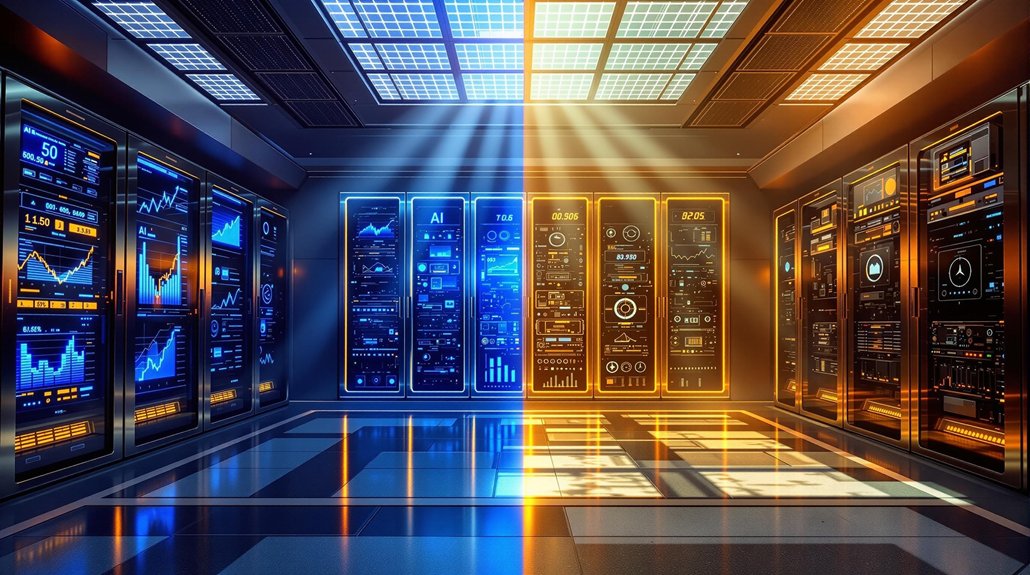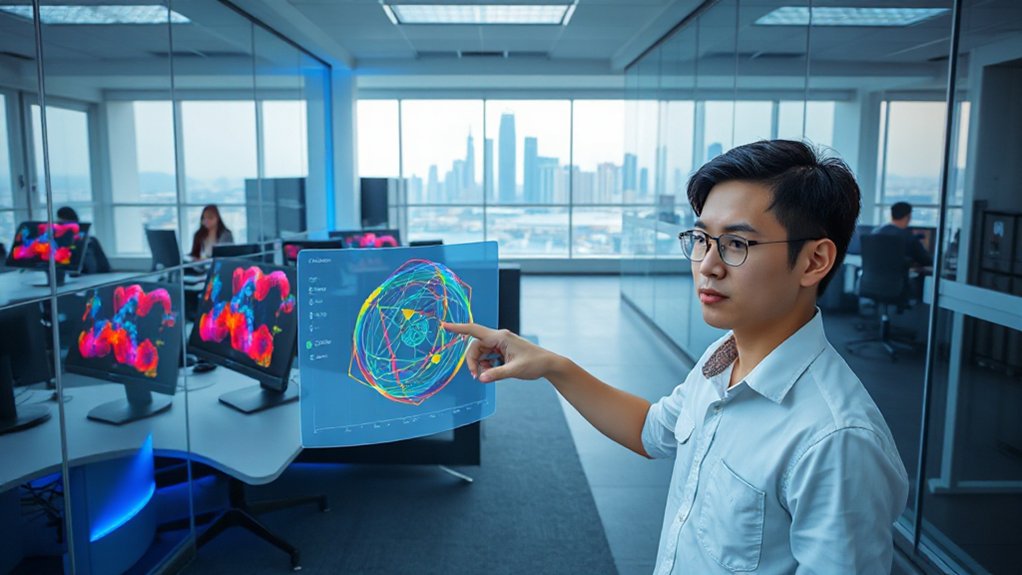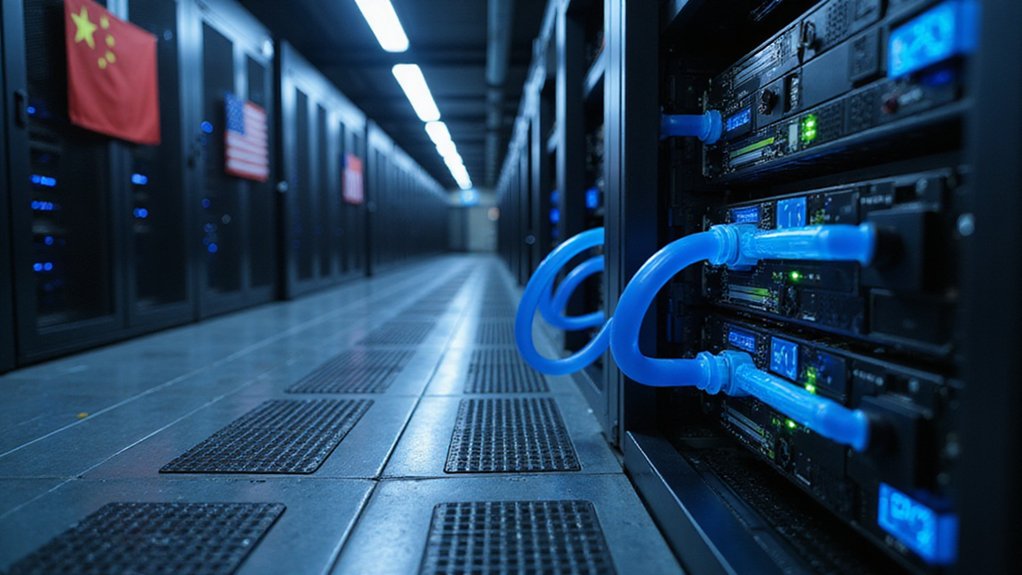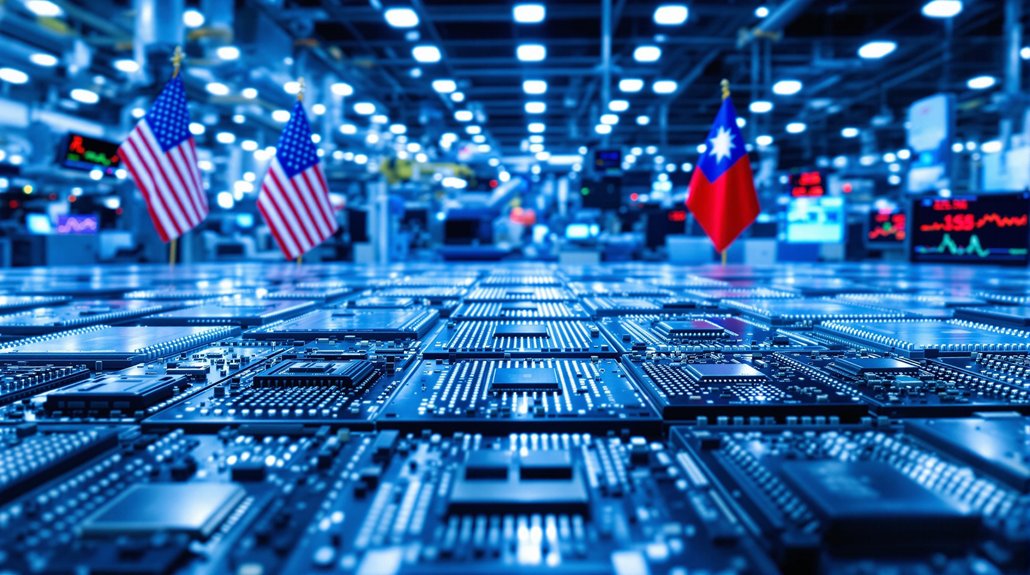Artificial intelligence now powers key parts of the economy, from healthcare to transportation. Experts predict AI could add $15.7 trillion to global GDP by 2030. Yet skeptics question if these technologies truly create value or simply replace human workers with expensive systems. Companies invest billions in AI capabilities while economists debate its real-world impact. The promised productivity gains sound impressive on paper, but do they materialize in practice? The answer affects everyone’s economic future.
While experts continue to debate the extent of artificial intelligence’s impact, the numbers tell a clear story of AI’s growing dominance across the global economy. The global AI market is expanding at a remarkable pace, with projections showing 38% growth in 2025. In the United States alone, the AI market is expected to reach nearly $300 billion by 2026.
This rapid growth reflects widespread business adoption. Almost 90% of small businesses have already integrated AI tools for automation and productivity gains. Among larger companies, 55% are actively using AI, while another 45% are exploring implementation options. This isn’t surprising when 92% of executives plan to increase AI spending within three years.
The potential economic impact is staggering. AI technology could contribute $15.7 trillion to global GDP by 2030, according to some forecasts. Goldman Sachs predicts a $7 trillion boost to global GDP over the next decade. These figures represent significant economic transformation, with AI-driven revenue increases potentially boosting local economies by an additional 26%. The telecommunications sector is particularly embracing this technology, with 52% of organizations now using chatbots to enhance customer service. Research shows every AI dollar invested generates $4.60 in economic value throughout the global economy.
AI’s potential $15.7 trillion contribution to global GDP by 2030 signals massive economic transformation ahead.
However, not all predictions are equally optimistic. Some researchers suggest a more modest 1% GDP increase over ten years if only a small share of tasks are successfully automated. The technology’s effect on jobs is likewise contested. The IMF estimates AI will affect almost 40% of jobs globally, requiring significant workforce reskilling.
Sectors experiencing rapid AI transformation include manufacturing, marketing, and customer service. The technology is changing how people interact with devices, with 41% of smart device users regularly utilizing voice-search features. Notably, agentic AI has been identified as the biggest tech trend for 2025, with 82% of enterprises planning to integrate AI agents within three years. By 2025, an estimated 8 billion AI-powered voice assistants will be in use worldwide.
With nearly 100 million people already working in the AI space globally, the industry’s influence continues to expand. Whether AI represents an economic miracle or merely the latest overhyped technology remains debated, but its growing presence across business sectors is undeniable.
The coming years will reveal whether the most optimistic economic projections materialize or if more measured outcomes prevail.









